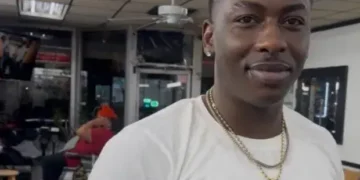Stemming the Tide of Violence against Women: WACOL Trains Stakeholders on Women’s Rights and Leadership Roles Fifty female Gender Advocates were trained and inaugurated at the weekend as members of the 50-50
Action Women, Edo State Chapter, at the end of a 2-day intensive training workshop organized by the women and Collective(WACOL) in Benin City, Edo State.
The training, supported by the Ford Foundation, was centered on Women’s Rights, Leadership, and Advocacy for the Elimination of Violence against Women and Girls in Edo State.
Welcoming participants at the training, Prof Joy Ezeilo, Executive Director, WACOL, represented by Mrs. Egodi Blessing Igwe, stated that WACOL is a Non-profit organization that kicked off operations in 1997 with a vision of contributing its quota to realizing a society free from abuse, with core values centered on equity, equality, and justice for women.
Prof Ezeilo stated That the NGO has established itself and implements programs across West Africa, even with observer status in the United Nations.
She said that WACOL boasts of institutional capacity to implement projects across the board in advancing the human rights of women and works with the judiciary in giving women access to free legal aid and dispensing justice in issues affecting women,
with over 2000 women in a year being beneficiaries of its flagship project, the WACOL Legal Aid Project which, she noted, has assisted over 62,000 women in cases of women’s rights violation, and violence, among other social welfare interventions,
including ensuring the right of girls to education and getting male partners committed to paying welfare support to estranged women and children.
Prof Ezeilo stated that the outcome of the training will be the inauguration of a cluster of women-led movements across the project states that will be the drivers of change and lead advocacies demanding accountability for gender equality and empowerment of women and girls in their respective states.
Presenting a paper on the Human Rights of Women, Dr. Hadiza O. Okunrobo, from the Department of Public Law, University of Benin, defined human rights as rights that people are entitled to as human beings and took participants through a list of human rights issues, including rape and other forms of violence against women and enabling Laws, Charters, Declarations and Protocols, including the Universal Declaration of Human Rights (UDHR), CEDAW, and other national, regional and state laws that will help advocates in the pursuit of fundamental human rights of women.
She stated that Sexual Rights and Sexual Reproductive rights are part of human rights and categorized Sexual Reproductive Human Rights(SRHR) into two broad rights, namely, the right to reproductive health services and the right to reproductive autonomy which, she noted, are both recognized in CEDAW and comprehensively protected in the African Women Protocol.
Sexual Violence, early or forced child marriage, harmful widowhood practices, domestic violence, and female genital mutilation, among a host of other issues were listed as women’s rights issues affecting women’s advancement and which must be tackled by taking deliberate actions in the right directions.
Highlighting the challenges faced by advocates to include the gender-insensitive language of the Nigerian Constitution, Dr. Okunrobo stated that there was a need to advocate for a gender neutral language because the language of any document can distort actions being taken to enforce compliance and the pursuit of justice.
She stressed that it is important for all women to know their rights as human beings, and the specific sexual and reproductive rights accruing to them on the basis of gender, including socioeconomic rights which are guaranteed under Chapter 11 of the 1999 Constitution as amended.
Dr. Okunrobo also stressed the critical need for economic empowerment of women to reduce dependence on the property and the agelong struggle for inheritance.
“The strength of women to survive is usually stretched thin during the war and armed conflict, and in Nigeria recently it was particularly challenged in the Covid-19 pandemic era when lockdown meant hunger and starvation for families where women are not economically empowered. It is therefore key that women be empowered, true and true.” She stated.
She, therefore, urged all women to take with all seriousness the issue of economic empowerment without which making headway in the elimination of violence against women is difficult.
Also presenting her paper on Women’s Transformational Leadership for Realization of Women’s Rights, Mrs. Chioma Eze, Migration Programme Coordinator, ActionAid Nigeria, defined leadership as the action of leading a group of people or an organization, or the influence wielded by an individual on a group of individuals.
She enumerated and defined eight types of leadership, including autocratic, democratic, bureaucratic, charismatic, and transformational leadership, among others, and highlighted several leadership theories advanced by philosophers to support the idea of leadership in the struggle for the attainment of human rights, including the Great Man Theory that leaders are born not made and the Contingency Theory.
According to her, the Burns Transformational Leadership theory had overarching advantages over others and was recommended it to advocates because of its three angles of idealized influence and benefits, which alligned with the democratic nature of carrying people along and putting the needs of others above that of the leader, charismatic and inspirational motivation and intellectual stimulation.
Mrs. Eze encouraged women to engage in self-reflection activities and develop their leadership statements, a personal mantra created to guide their leadership philosophies in life.
She stated that leadership is necessary for the realization of women’s rights and tasked women to develop political skills and networks in informal domains.
She enjoined women to rise above challenges rooted in cultural and traditional institutions and stereotypes and in women themselves, including failure to recognize women as potential leaders because of those set cultural and other barriers.
She further stated that women need a lot of family support to overcome strong norms affecting their involvement where many are just fitting in; that they’re being undervalued reinforces a stereotype of low self-esteem that they are not good leaders.
The resource person recommended as pathways to success political apprenticeship on change of political discourse, behavior, creating alliances, mode of dressing, literacy, handling of security, and planning ahead for both family and career.
Presenting her paper on Sexual and Gender-based Violence, Dr. Georgina Erhomonsele, Head of the Vivian Centre defined Gender as the societal role conferred on people based on whether they are male or female. She said gender-based violence is not restricted to females but 80 Percent of cases is suffered by women, with three to four out of ten women suffering violence in their lifetime.
She noted that due to the fact that most cases of violence are unreported, vigorous sensitization and awareness creation will help reduce cases and help victims and survivors to heal and have closure
She applauded the help of Sexual Assault Referral Centres(SARCS) and stated that the Vivian Centre hears cases and keeps victims’ confidentiality intact, as well as gives counseling and free drugs.
“GBV is beyond physical, beyond a scar on your face. It is a thing of the mind; it weighs on your mental health.” the medical practitioner stated.
She noted that it is important for people to know where to go, and who to talk to, and enjoined stakeholders to join hands together to shun cultural norms which encourage violence and to work towards bringing perpetrators to book.
Also delivering a paper on A Way Around Advocacy and Lobbying, Dr. Erhomonsele canvassed advocacy and lobbying as tools for raising awareness and informing the public about the issues that affected women and how to team up in squaring the challenges affecting the progress of women.
Defines advocacy as anything said or done by a person or group to influence decisions within institutions, both in executive, and legislative capacities, and to change public opinion.
She tasked stakeholders to adopt the principles of positive advocacy which include clarity of purpose, safeguard(ensuring advocates understand what to do if they think someone might be at risk of abuse or neglect, and confidentiality, equality, and diversity, whether directly or indirectly.
At the end of the Training, Participants, including Dr. Mrs. Nosa Aladeselu, Coordinator, AWEEG, Prof Agatha Eguavoen, Director, Centre for Strategic and Development Studies, UNIBEN, Prof Uwa Edosomwan JP, Gender Advocate, and immediate past Director, Centre for Gender Studies, UNIBEN Louisa Agbonkese of the Echoes of Women in Africa, Stella Ojeme, former FIDA-Edo Chairperson and Coordinator, Edo State Child Protection Network, Doris Onyinye, Mariam Kadiri-Izolome of the Global Women for Quality and Sustainable Development, among others recommended suggestions and way forward to include helping women as victims or survivors to thrive, helping them survive their ordeals through counseling and disease prevention, ending the culture of stereotypes, empowerment initiatives to deemphasize struggle for an inheritance, ending poverty and stagnation through skill acquisition and multi streams of income.
They also canvassed for networking, collaboration, and lobbying in pursuing policies towards the implementation of the VAPP Law or domestication of same, tasking those in strategic positions to remove bottlenecks that hindered women’s involvement in politics, like a financial burden and meeting political parties’ schedules that were inconveniencing for women as home builders, training children equally without discrimination on the basis of sex, engaging traditional rulers to review existing cultural and traditional norms that affected women, among others.
Inaugurating the 50-50 Action Women, Prof Ezeilo, Founding Director of WACOL stated, ” You are very lucky to be part of the selected few. The change will come as a collective. When we push as a team, we can get results.”
NEWSLINE ATTACHED:









